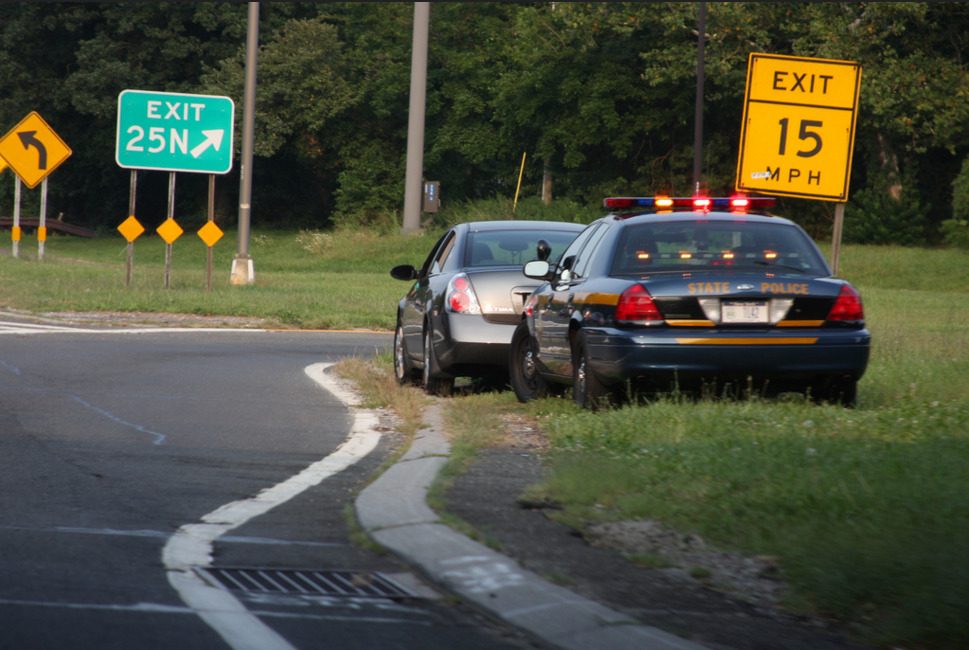When you are arrested and accused of a serious crime, panic sets in. It’s easy to make poor decisions in the heat of the moment.
Many people think they know what to do when confronted by law enforcement officers, but it’s a whole different story when you’re actually standing in front of a police officer, being accused of a crime. It’s almost impossible to be ready for the tough decisions you’ll have to make.
So what should you do if an officer asks to search your vehicle or give you a breathalyzer test?
In today’s post, I’ll go through the do’s and do-not’s of police searches and search warrants and help you understand your rights.
How Do Police Searches Work?
Law enforcement officers are trained to use intimidation to get people to comply with their requests. A police officer’s request to search without a warrant is a prime example of this use of intimidation, which most people give in to, despite knowing better.
 The Fourth Amendment to the United States Constitution, grants citizens the right to be free from unlawful search and seizure. This means the government, including law enforcement officers, can’t unreasonably deprive anyone of their privacy rights.
The Fourth Amendment to the United States Constitution, grants citizens the right to be free from unlawful search and seizure. This means the government, including law enforcement officers, can’t unreasonably deprive anyone of their privacy rights.
In other words, police officers can’t search anything they want and take anything they want, just because they are law officers.
That would be a violation of your constitutional rights.
This is the reason why search warrants exist.
Police officers can only obtain a search warrant when they think there is “probable cause” to believe they will find something specific based upon objective facts they have considered.
Officers are required to swear to the accuracy of all those facts in front of a judge before they can obtain a search warrant, which would lawfully deprive a citizen of constitutional privacy rights.
This all means nothing if you agree to allow an officer to search your property or belongings without a police search warrant.
Should I Ever Let an Officer Search Without a Warrant?
The only way an officer can legally search without a warrant is if you give your permission. A verbal consent to search is all an officer needs to search basically anywhere they want.
Don’t agree to a search. Law enforcement officers must be held to higher standards. If an officer knows something will be found, they can get a warrant and search AFTER a judge has confirmed that there is enough evidence.
Don’t let an officer intimidate you and suggest that you should give them permission to search. You will face greater penalties this way.
Refuse permission to search and force them to get a warrant if one is justified.
Searches in DUI Cases
Photo: dwightsghost on Flickr
Police search warrants are important in drug possession cases, but even more important in DUI situations. If you consent to giving a blood or breath sample, you have already given up most of your rights and made the officer’s job very simple.
No officer can force you to take a breath test, let alone exit your vehicle, without probable cause.
Submitting to field sobriety tests or any other chemical tests means you are consenting to a search of your body. Remember, your body is also protected under your constitutional right to privacy.
Know your rights and make law enforcement obtain a warrant before you submit to anything. In a DUI case in Montana, there are only very few situations in which an officer can get a warrant to draw blood from someone who refuses to consent to give it. Thus, in the majority of situations, the officer will not even be able to get a warrant.
If you consent to such a search, you are giving law enforcement officers evidence they would not be able to obtain on their own and would not even be able to get a warrant to obtain.

Logo
Protect Your Rights
Knowledge is power, and citizens need more knowledge. You have the right to privacy, so don’t allow intimidation factors to make you give up those rights.
Ensure a law enforcement officer obtains a legal warrant before invading your privacy. If you think your privacy rights have been violated, I can help.
Give the Judnich Law Office a call at (406) 721-3354 or contact us to learn more.

Marty is a former criminal prosecutor in the Cascade County Attorney’s Office and now uses that experience to defend those accused of crimes. A University of Montana School of Law graduate, Marty focuses his practice on personal injury and criminal defense and is a premier DUI defense attorney. He is also well versed in the insurance claims industry and has negotiated significant settlements with nearly every major insurance company.


